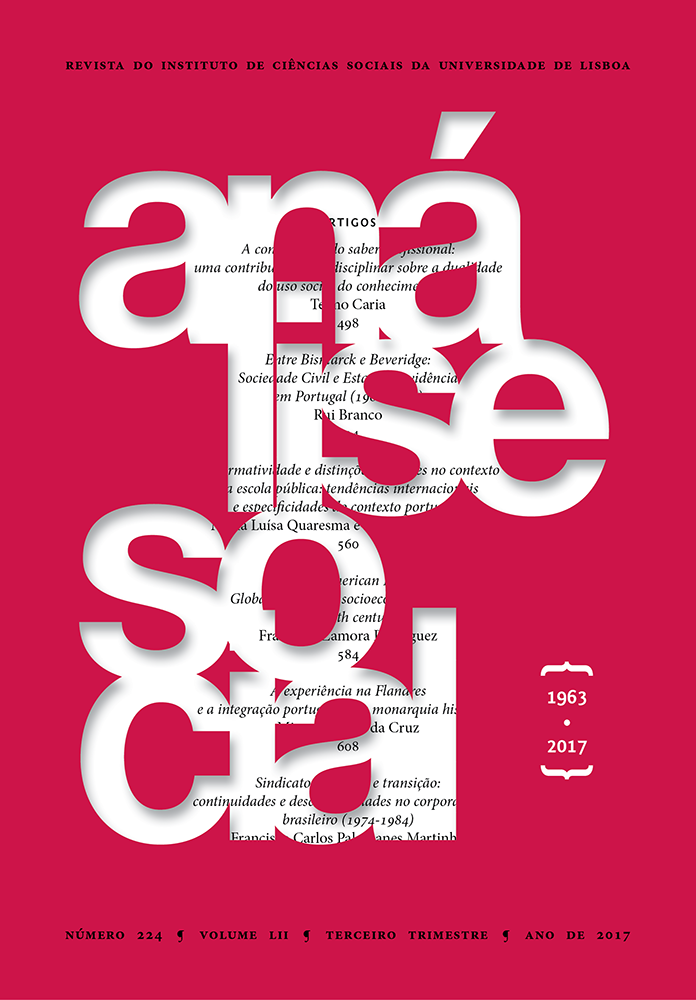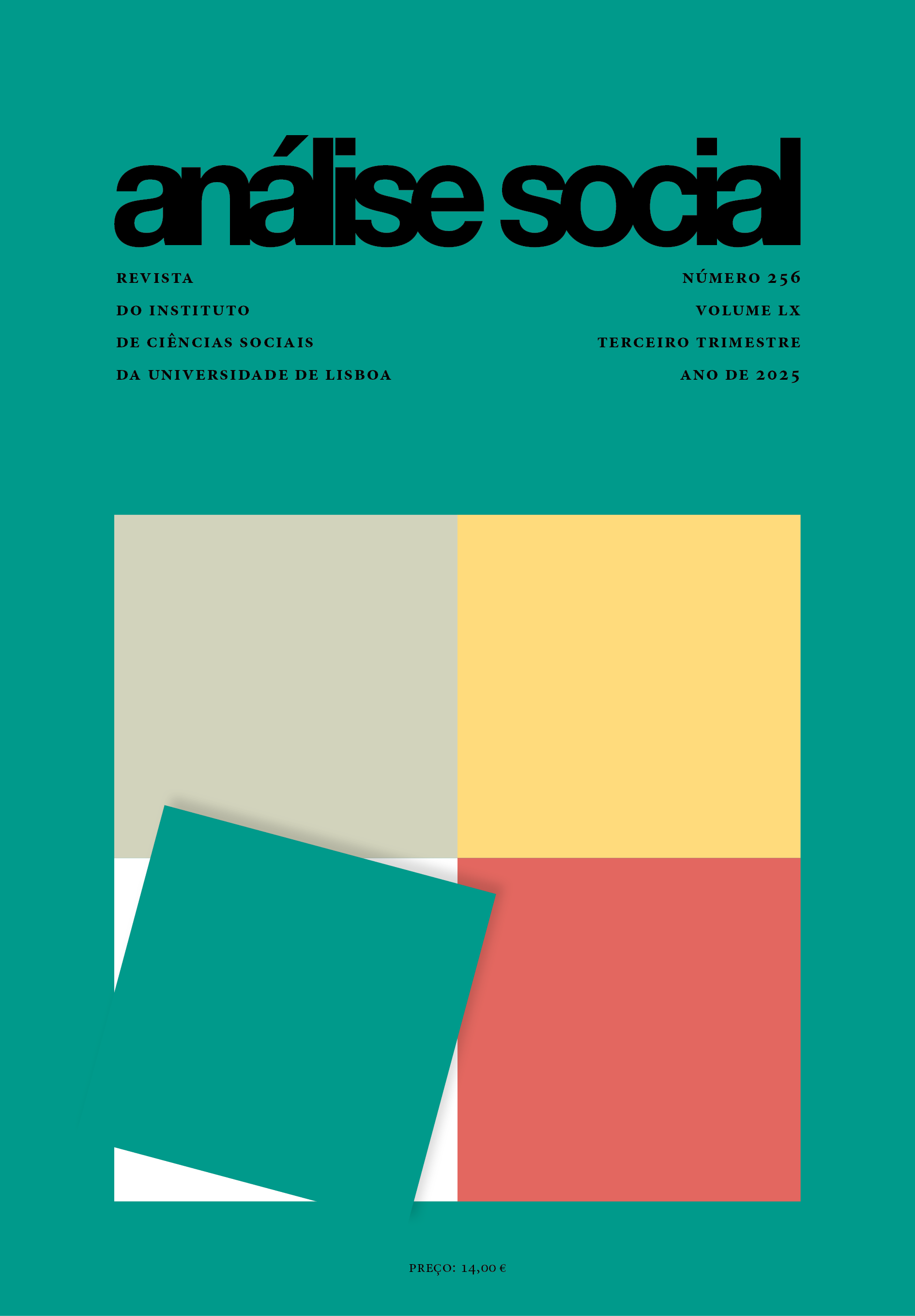Between Bismarck and Beveridge: Civil Society and Welfare State in Portugal (1960-2011)
DOI:
https://doi.org/10.31447/AS00032573.2017224.02Keywords:
Civil Society, Welfare State, third sector, democracyAbstract
Social services are a disproportionate part of the Portuguese civil society. How to explain this? By their provision of social services in partnership with the state and their participation in a neo-corporatist policy-making regime. Welfare civil society hugely expanded after the 1974 social revolution, with the consolidation of the welfare state from 1984 and with the Europeanization of social policy from 1986. Slowly, the democratic regime coupled social security and social assistance as social citizenship rights. The welfare civil society was instrumental in this. However, welfare civil society was not uniformly successful. Generally speaking, whenever social protection is defined as a universal social right, financed, managed and provided by the state, this leaves little room for civil society, except in a residual manner.



